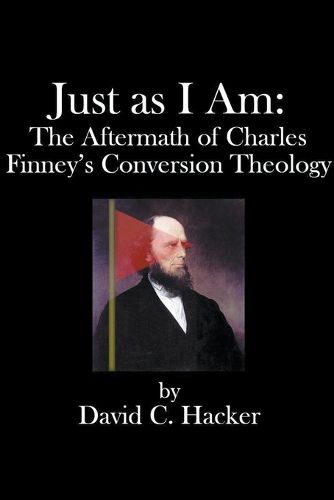Readings Newsletter
Become a Readings Member to make your shopping experience even easier.
Sign in or sign up for free!
You’re not far away from qualifying for FREE standard shipping within Australia
You’ve qualified for FREE standard shipping within Australia
The cart is loading…






This title is printed to order. This book may have been self-published. If so, we cannot guarantee the quality of the content. In the main most books will have gone through the editing process however some may not. We therefore suggest that you be aware of this before ordering this book. If in doubt check either the author or publisher’s details as we are unable to accept any returns unless they are faulty. Please contact us if you have any questions.
This book examines the relationship between the conversion theology that was popularized by Charles Grandison Finney and the theological drift of Baptists in the South from Calvinism to Arminianism. It begins with a survey of the historical evidence of the Calvinistic roots of Baptists in the South by way of a brief overview of Baptist origins in England, followed by an overview of Baptist life in America including the founding of the first Baptist church in the colonies in the seventeenth century, developments in Baptist soteriology in the eighteenth and nineteenth centuries, and concluding with trends that emerged in the twentieth century. Next, an overview of the traditional or Calvinistic Baptist view of conversion prior to the mid-nineteenth century is made which provides a brief contrast of the two predominant views held by evangelicals, Arminianism and Calvinism, and demonstrates how uncommon the views of conversion that were popularized in the mid to late nineteenth century had previously been.
The remainder of the book focuses on the conversion theology of Finney and the opposition from his contemporaries by analyzing Finney's rejection of reformed orthodoxy and the use of the means of grace, his views that revival and conversion are of human rather than divine origin, his departure from the Edwardsean theological tradition he had inherited, his Pelagian and semi-Pelagian tendencies, his conflation of backsliders with false professors, and the fact that he propagates and popularizes existing error rather than inventing new a theology or methodology. Next, the effects of Finney's theology on Southern Baptists and evangelicalism as a whole are considered under the following headings: Finney's polemical rewriting of history and its effect on subsequent generations, the effects of revivalism, and the specific effects of Finney's theology on Baptists, the understanding of God and His role in conversion, and church practice. The book wraps up with a summary of the lingering effects of Finney's Pelagian theology on the church today which concludes that Finney's influence on Baptists in the South was part of the theological shift from their Calvinistic roots to Arminianism as the dominant theology, and ends with practical and pastoral applications for the church today.
$9.00 standard shipping within Australia
FREE standard shipping within Australia for orders over $100.00
Express & International shipping calculated at checkout
This title is printed to order. This book may have been self-published. If so, we cannot guarantee the quality of the content. In the main most books will have gone through the editing process however some may not. We therefore suggest that you be aware of this before ordering this book. If in doubt check either the author or publisher’s details as we are unable to accept any returns unless they are faulty. Please contact us if you have any questions.
This book examines the relationship between the conversion theology that was popularized by Charles Grandison Finney and the theological drift of Baptists in the South from Calvinism to Arminianism. It begins with a survey of the historical evidence of the Calvinistic roots of Baptists in the South by way of a brief overview of Baptist origins in England, followed by an overview of Baptist life in America including the founding of the first Baptist church in the colonies in the seventeenth century, developments in Baptist soteriology in the eighteenth and nineteenth centuries, and concluding with trends that emerged in the twentieth century. Next, an overview of the traditional or Calvinistic Baptist view of conversion prior to the mid-nineteenth century is made which provides a brief contrast of the two predominant views held by evangelicals, Arminianism and Calvinism, and demonstrates how uncommon the views of conversion that were popularized in the mid to late nineteenth century had previously been.
The remainder of the book focuses on the conversion theology of Finney and the opposition from his contemporaries by analyzing Finney's rejection of reformed orthodoxy and the use of the means of grace, his views that revival and conversion are of human rather than divine origin, his departure from the Edwardsean theological tradition he had inherited, his Pelagian and semi-Pelagian tendencies, his conflation of backsliders with false professors, and the fact that he propagates and popularizes existing error rather than inventing new a theology or methodology. Next, the effects of Finney's theology on Southern Baptists and evangelicalism as a whole are considered under the following headings: Finney's polemical rewriting of history and its effect on subsequent generations, the effects of revivalism, and the specific effects of Finney's theology on Baptists, the understanding of God and His role in conversion, and church practice. The book wraps up with a summary of the lingering effects of Finney's Pelagian theology on the church today which concludes that Finney's influence on Baptists in the South was part of the theological shift from their Calvinistic roots to Arminianism as the dominant theology, and ends with practical and pastoral applications for the church today.